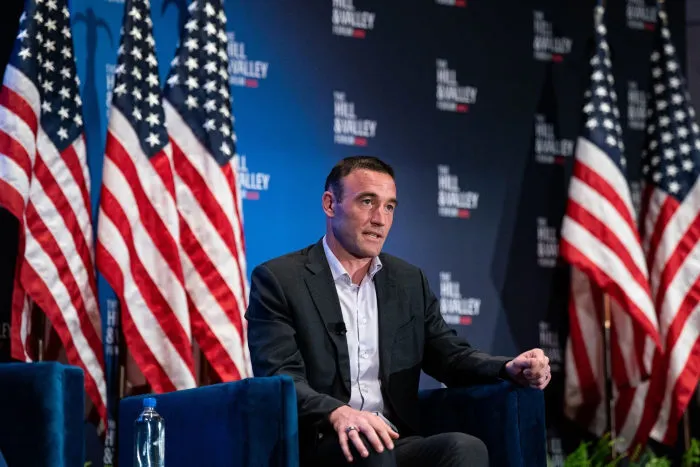The Army’s Newest Recruits: Tech Execs From Meta, OpenAI and More
In a bold and unprecedented move, the United States Army is venturing into the realm of technological transformation by recruiting executives from some of the top tech firms in the country, including Meta, OpenAI, and Palantir. This initiative, known as Detachment 201: Executive Innovation Corps, aims to infuse military operations with cutting-edge technological advancements and foster a culture of innovation within the Army.
Why the Army is Turning to Tech Executives?
As the world faces rapid technological transformation, the military increasingly recognizes the need to adapt to advanced technologies. The traditional landscape of warfare is changing, with fields like cyber warfare, artificial intelligence, and data analytics becoming paramount to national security. Data from the Pentagon shows an urgent need to optimize operations and streamline decision-making processes. By recruiting prominent tech executives, the Army aims to pave the way for a modernized defense strategy that can respond to emerging threats.
Introducing Detachment 201
Detachment 201 is the Army’s latest brainchild, designed to harness the knowledge and expertise of seasoned tech professionals. The initiative not only focuses on traditional military strategy but also aims to leverage innovative technologies to enhance operations. This includes artificial intelligence, machine learning, data analytics, software development, and cybersecurity. The executives are expected to provide insight into how these advancements can be effectively integrated into military processes.
Recruitment Strategy and Selection Process
The recruitment process for Detachment 201 involved a rigorous selection of tech executives who have proven their mettle in high-stakes environments. Officers from renowned tech giants have demonstrated an exceptional ability to solve complex problems, develop innovative solutions, and navigate the fast-paced world of technology. The Army is seeking individuals who can think outside the box, analyze challenges creatively, and implement strategic changes effectively.
Some notable recruits include experienced officers who previously held senior positions in Meta’s analytics team, software engineers from OpenAI, and data scientists from Palantir Technologies. Each of these executives brings invaluable experience and knowledge of both the tech industry and its applications within military contexts.
Transforming Military Operations
The introduction of tech executives into military ranks is expected to fuel transformation across various facets of military operations. One critical area where this initiative is anticipated to make a significant impact is in data analysis and intelligence gathering. By utilizing advanced data analytics tools and artificial intelligence, the Army aims to make more informed decisions rapidly and with greater accuracy.
Cybersecurity is another critical focus area for Detachment 201. With the rise of cyber threats against national security, the Army recognizes the importance of strengthening its cybersecurity posture. The tech executives’ expertise in building secure applications and systems will be vital in fortifying the Army’s digital infrastructure.
Cultivating a Culture of Innovation
Beyond technological integration, the Army’s initiative emphasizes the cultivation of a culture of innovation within military ranks. By bringing in professionals from the tech industry, the Army aims to instill a mindset that encourages experimentation, agility, and adaptability. This paradigm shift is essential for producing military leaders who can navigate the complexities of modern warfare effectively.
Workshops, training programs, and collaborative projects between tech executives and Army personnel will be crucial for fostering innovation. These partnerships are expected to spark new ideas for enhancing operational efficiency and improving overall military capabilities.
The Broader Implications
The implications of Detachment 201 extend beyond military operations. By partnering with professionals from leading tech firms, the Army is also positioning itself as an attractive career destination for young tech talent. As the tech industry has seen significant layoffs and restructuring, the Army’s initiative offers an enticing opportunity for professionals seeking meaningful work that contributes to national security and public service.
Challenges and Concerns
While the Army’s initiative has been met with enthusiasm, it is not without challenges and concerns. Some critiques revolve around the potential risks of integrating civilians, particularly from the tech sector, into military operations. There is a valid concern that differences in workplace culture, training, and attitudes toward ambiguity may lead to friction. The distinct operational tempo of the military may clash with the iterative nature of tech development.
Additionally, there is a call for transparency regarding the operational processes and possibly ethical implications of utilizing AI and data analytics in military operations. Ensuring that the Army handles sensitive data responsibly and ethically is a priority that must be rooted in policymaking.
Future Outlook
As the Detachment 201 initiative unfolds, its success will be measured by its ability to transform the Army into a more technologically advanced force. The Army’s leadership will need to be adaptable and willing to embrace unconventional approaches to problem-solving. Early indicators suggest that the integration of tech executives might foster a spirit of innovation that could indeed reshape military operations.
In conclusion, the Army’s adoption of tech executives from industry powerhouses marks an exciting chapter in military evolution. Detachment 201 aims not only to advance military capabilities but also to cultivate a new generation of leaders equipped for the technologies of tomorrow. As this initiative progresses, it could highlight a new era of collaboration between defense and technology sectors, with a shared vision of national security that is resilient and ever-evolving.







